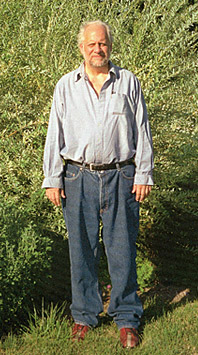Resources Versus Art
My dad hated “throwing money at problems”, yet he was as guilty as most folks in business, and even more of us in our personal lives. Money easily seduces its owners into madness. Its abuse leaves long and terrible hangovers. Always better to “work the problem”.
Just as mythological as the silver bullet of money is the magical power of technology. Money does nothing more than buy you things; technology merely extends the range of existing abilities. Technology is as deaf, dumb and blind as ten million dollars. The true romance of resources is found in the miner’s tale, the farmer’s story, the captain’s log, the soldier’s diary, the death of a salesman.
So what’s it all about, Alfie?
The greatest challenge in commerce is to serve the public, to sell to the masses. I’ve had many talks with scientists and inventors who insist on “a little more time” or “more space” or—most frequently—”more money” to achieve their perfect goal. The curse of the PhD in business is to develop his work to the full capacity of its technical range, with no regard to the fact that the customer does not want it. The secret to product development is in the intermediate range. “But I can do this,” the breeder protests, when you announce the release date of his new cultivar. There is nothing more fatal than a “perfect” product.
Usually given to the breeder by a dissertation advisor, this wretched curse of the goal of perfectibility weakens over time. The alternatives are enduring a miserable collegial environment, or quitting for another profession, such as religion (not uncommon). However, often a research professional finds an effective niche in business with savvy marketers. It doesn’t happen very frequently—but neither does a rousing success. The tip of the pyramid is small.
Whether the industry is automobiles, consumer electronics, fine food or gardening, greatness results from a balance between the possible and the desirable. Wine is a great example. If you want to blast through an evening, Two Buck Chuck, or the ubiquitous box wine, does the trick. For a less crude experience, you may choose from several hundred more expensive, distinctive and enjoyable wines. At the top, for a truly memorable long night, there are several dozen wineries that demand about fifty dollars a bottle. For these wines to be successful, the winemaker goes not to the full extent of his technical ability, but works out a balance between his resources of time and money on one hand, and personal and collegial talents on the other to find the taste that hits the bull’s-eye. It is complex work that requires huge energy, talents, and sensitivity. The tastings by the judges are run blind, ranked on a numerical scale and published in widespread wine magazines. I stumble over stacks of them at the local Borders. No amount of money or technological resources created the stunning achievements of Warren Winiarski or Michael Grgich, the two Napa winemakers who beat the best of French wines in 1976. Rather, they literally lived with the vines, worked hundreds of sleepless nights in the wineries, and intimately understood their customers’ palates. No technology or money involved.

I knew Mr. Grigch. He used to come by to promote his Chardonnay when we had our Restaurant. You may recall he died on the autobahn, test driving a very fast BMW> He was 81 I believe. Very well liked in the now Serbian community of Los Angeles.
mpd